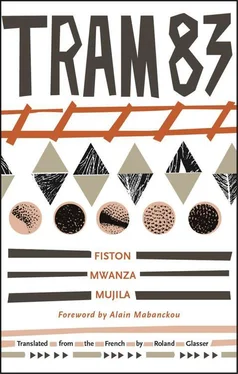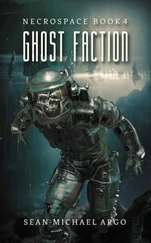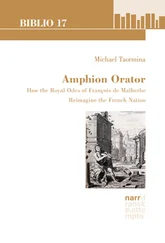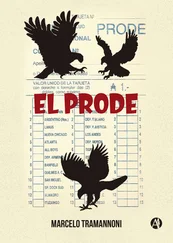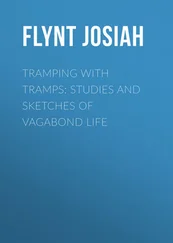He’d hardly added anything to the text since his journey. Twenty characters, and discharge the text in a few months. Not easy. He’d been keeping up a correspondence with a friend who lived in Paris. The friend was making contacts and had supposedly already secured the approval of a few French theaters, where his text would be staged before making a one-off tour of Brazil, Chile, and Cuba. He should have completed the text four months ago, but circumstances had prevented him from refocusing his characters.
The first version of the manuscript had been burned. In fact, he’d set light to it himself. You think he had a choice, with a Kalashnikov at the back of his neck? They’d paid him a visit during the night and told him, coldly, from under their red berets: “Chuck it over there. Burn it.” He’d resisted fiercely, but with a Kalashnikov at the back of his neck …
A few days after the incident, he received a phone call from his Paris buddy, who resided at Porte de Clignancourt — the neighborhood was a Mecca for impoverished immigrants and other outlaws — to inquire after the progress of the text: “Where are you at with it? It’s vitally important.” He stammered an excuse. In life, it’s a curious virtue to pay for your own mistakes. He’d done it, but paying doesn’t mean finding inspiration and rewriting your own literature, word for word, to the nearest comma. He’d fallen back on his guts for the rewrite, juggling the loss of his daughter with his wife’s illness, but the Clignancourt friend phoned again, fuming, cursing, reminding: “What you playing at, Lucien? I’m in a bind with these French dudes while you sleep in late, nice and easy!” He should have admitted he’d set fire to his stage-tale because a gun had been held to the back of his neck by a guy sporting a red beret, that his daughter had died, and so on and so forth.
A girl accosted him by the elevators.
“What do you think?”
“Nothing.”
“I’m Christelle.”
“Yes …”
“Chris to my friends.”
He was disoriented. The hunger. The fatigue. The heat. The Paris friend, at Porte de Clignancourt, who didn’t stop calling. The characters from his text, for which he’d lost all appreciation. His daydreams. The ruckus of Tram 83. Requiem, in whom he’d placed his trust and who swore only by the New World.
“I love to give head …”
Overtaken by events, he still retained a glimmer of hope and even of beauty. Highbrow. Uncool. Bearded. Unpolished shoes. Straggly hair. Stubbly. Surveys show that eighty percent of girls fall for such individuals. It’s exotic, African, contemporary, New Mexico … Girls increasingly prefer men with some dodgy baggage, a bulging criminal record, a dubious past, a deal with some Beijing tourists, for example.
“I can make you happy, just say the word.”
There was something prophetic about Requiem. Lucien had already been informed, at the Northern Station, as if in a parable: “The City-State works like this: the girls are emancipated, democratic, and independent. Poverty does away with shame and your courtesies. Here, it’s often the girl, be she baby-chick or the opposite, who takes the initiative. She slips you into her strategy. She looks you straight in the eye. She asks your name. She tells you that you’ve got a great body, that your voice gives her goose pimples. She telephones you, again and again. She clings to you like a leech. But not always from love and other affections. She sticks fast to you because you buy the drinks (given the price of beer at the Tram!), the food (outside of the Tram, itinerant restaurants serving dog-stew, cassava, and smoked rice with onion), and then, after bed, you give her a bit of cash for the work accomplished, transport, and so forth. It’s the girl who tells you the proper procedure when you screw. She manages the whole shebang, from Genesis to the Letter to the Corinthians: ‘Put your leg like this, place your right hand on my belly, ride me like I were your horse, stroke my curves, back, forward, back, forward slowly, stop, now start stroking my hair …’”
“My name, Lucien …”
“You live with the First Man?”
“The First Man, who’s that?”
“Requiem.”
“Since yesterday.”
“Is he your brother? I glimpse a resemblance. He bangs on about his brother who lives and works in Peru.”
The girl had come closer to him, nearly hanging on to his raggedy clothes.
“Peru …”
He smiled.
She pressed her head to his left shoulder.
“Peru …”
“You fit the description.”
Darkness. Christelle gave a little scream. Power cut, commonly called “blackout.” He remained calm, yet concerned.
“My heart told me not to take the elevator. Blackouts compete with the angelus bell and the man in the minaret.”
“…”
“What do you do for a living?”
“Me?”
“You don’t look like an imbecile. History teacher …”
“Ex …”
“Aren’t you ashamed?”
“Why?”
“It’s a waste of energy. We live in the present moment. And what do you do to eat? The students are always on strike and it lasts for years!”
“Do you work?”
The inhabitants of the City-State mumbled when asked about their profession. High voice. Evasive answers. Narrowed eyes. Vague and uncertain look like the trains that depart and return with the diggers and students. “They shit in the train,” added Requiem, almost in tears, as if he were a tourist, or cousin to a tourist.
“Well, am I sussing out a deal?”
“Detective,” he said, ironically.
“Just a good lead.”
Noise throughout the building. The power was back. Christelle, Chris to her friends, took advantage of the situation, and changed the conversation.
“I’m inviting you to our Coupé-Décalé party this Saturday. Are you free?”
“No.”
Downstairs, they went their separate ways, delighted to have made each other’s acquaintance.
“You got any dough on you?”
“I’m poor.”
“Married?”
“Not so much.”
He had somewhat mastered the chapter on “Discussion with a young woman you meet in the elevator.” Requiem had given him the code: “Try by any means to remain neutral, cold, and forlorn.”
“Do you love me?”
He crossed the street.
SECOND NIGHT: THE NIGHT WORE HER SWIMSUITS AND UNDERSHIRTS SHE FORGOT TO WRING OUT.
Jalopies out of gas, deep-frozen products from the Galapagos Islands, knickknacks, ceiling fans, oil changes, sheep, sarcastic remarks, hearses on alert, eggs contaminated with melamine, relics, minarets as far as the eye can see, bistros, baker-deli-linen-fish-lumber stores, phone booths, internet cafés, criminal records, pools of stagnant water, garbage bags at the mercy of beggars, stray dogs, no-entry signs, mountains of refuse, black market in the merchandise and its derivatives, discotheques, abandoned locomotives, born-again Christian evangelist churches, cockfights, settlings of scores, boxing galas, mosquitoes resistant to all pesticides, booing, trolleys, wimps bankrolled by mercenaries, Neanderthals, laundries, desires, beverages, arranged widowhoods of wives of soldiers declared missing, ringworms, jeers revised and corrected by the foreign press, daydreams of dissident rebels prepared to open another front because of an oilfield, magic potions to treat unidentified diseases, backwash and backwash, cannibals, bleeders, baby chicks with their “do you have the time?”, idols with feet of clay, smoking rooms, palimpsests, cathedrals, repeat offenders in custody released on bail who return to the scene of the crime with the weapon of the crime, oriental tapestries, suicidals, the comings and goings of naked-men diddlers, assorted gaffes, superfluities, prolegomena, dark looks, erections paraphrased and channeled into paper tissues … The night came on with her swimsuits and undershirts she forgot to wring out.
Читать дальше
